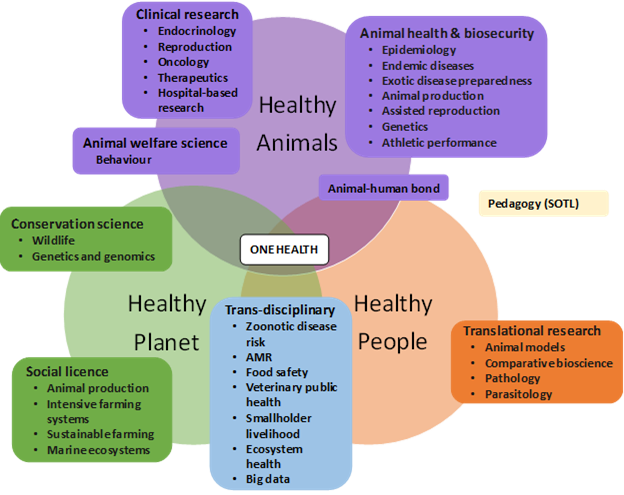Research in the School of Veterinary Science spans a broad spectrum of veterinary science disciplines.
Our research is organised under 3 primary thematic areas: Healthy Animals, Healthy People and Healthy Planet, under the umbrella focus of One Health.
The foundation theme is our veterinary emphasis on animal health and well-being. This theme incorporates traditional focus areas of animal disease control and prevention (infectious and non-infectious diseases) and animal production across a range of outcomes such as fertility, feed conversion, milk/meat/fibre production.
Leadership in clinical practice innovation is demonstrated by contributions to clinical knowledge and best practice guidelines as well as inputs into policy and regulatory outcomes at state, national and international levels.
We also maintain important research impacts in animal well-being and sustainability, including animal welfare and broader contextual issues (social, cultural, political, economic) to understand behavioural drivers of animal health management.

